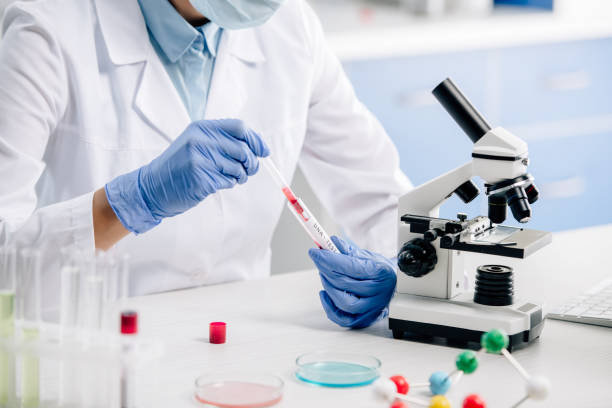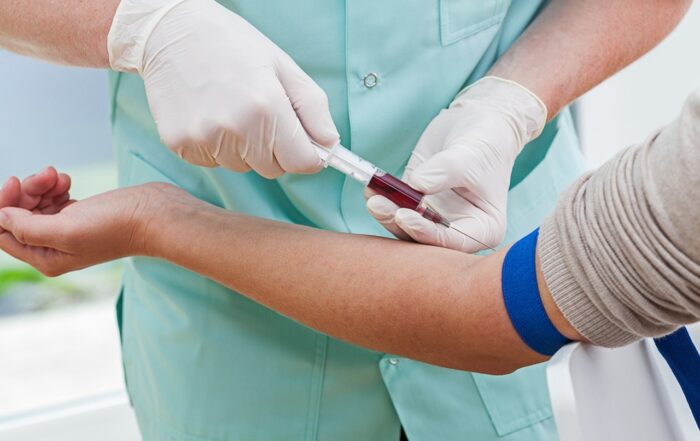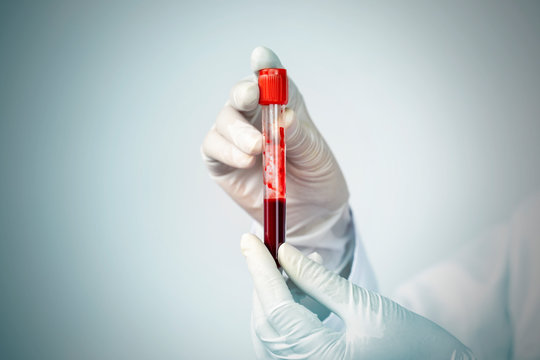Calcium Blood Test in Pune
A calcium blood test measures the amount of calcium in your blood. Calcium is one of the most important minerals in your body. You need calcium for healthy bones and teeth. Calcium is also essential for proper functioning of your nerves, muscles, and heart. About 99% of your body’s calcium is stored in your bones.
Alternative Names
Ca+2; Serum calcium; Ca++; Hyperparathyroidism – calcium level; Osteoporosis – calcium level; Hypercalcemia – calcium level; Hypocalcemia – calcium level
What is it used for?
There are two types of calcium blood tests:
- Total calcium, which measures the calcium attached to specific proteins in your blood.
- Ionized calcium, which measures the calcium that is unattached or “free” from these proteins.
Total calcium is often part of a routine screening test called a basic metabolic panel. A basic metabolic panel is a test that measures different minerals and other substances in the blood, including calcium.
How to prepare for the test?
Your health care provider may tell you to temporarily stop taking certain medicines that can affect the test. These medicines may include:
- Calcium salts (may be found in nutritional supplements or antacids)
- Lithium
- Thiazide diuretics (water pills)
- Thyroxine
- Vitamin D
Drinking too much milk (2 or more quarts or 2 liters a day or a large amount of other dairy products) or taking too much vitamin D as a dietary supplement can also increase blood calcium levels.
Why the Test is Performed
All cells need calcium in order to work. Calcium helps build strong bones and teeth. It is important for heart function, and helps with muscle contraction, nerve signaling, and blood clotting.
Your doctor may order this test if you have signs or symptoms of:
- Certain bone diseases
- Certain cancers, such as multiple myeloma, a cancer of the breast, lung, neck, and kidney
- Chronic kidney disease
- Chronic liver disease
- Disorders of the parathyroid glands (hormone made by these glands controls calcium and vitamin D levels in the blood)
- Disorders that affect how your intestines absorb nutrients
- Overactive thyroid gland or taking too much thyroid hormone medicine
- Abnormal vitamin D level
Your doctor may also order this test if you have been on bed rest for a long time.
Normal Results
Normal values range from 8.5 to 10.2 mg/dL (2.13 to 2.55 millimol/L).
Normal value ranges may vary slightly among different laboratories. Some laboratories use different measurements or may test different specimens. Talk to your doctor about the meaning of your specific test results.
What Abnormal Results Mean
A higher than normal level may be due to a number of health conditions. Common causes include:
- Being on bed rest for a long time.
- Consuming too much calcium or vitamin D.
- Hyperparathyroidism (parathyroid glands make too much of their hormone; often associated with a low vitamin D level).
- Infections that cause granulomas such as tuberculosis and certain fungal and mycobacterial infections.
- Multiple myeloma, T cell lymphoma and certain other cancers.
- Metastatic bone tumor (bone cancer that has spread).
- Overactive thyroid gland (hyperthyroidism) or too much thyroid hormone replacement medicine.
- Paget disease. Abnormal bone destruction and regrowth, causing deformity of the affected bones.
- Sarcoidosis. Lymph nodes, lungs, liver, eyes, skin, or other tissues become swollen or inflamed.
- Tumors producing a parathyroid hormone-like substance.
- Use of certain medicines such as lithium, tamoxifen, and thiazides.
A lower than normal levels may be due to:
- Disorders that affect absorption of nutrients from the intestines
- Hypoparathyroidism (parathyroid glands do not make enough of their hormone)
- Kidney failure
- Low blood level of albumin
- Liver disease
- Magnesium deficiency
- Pancreatitis
- Vitamin D deficiency
Cost of Calcium Blood Test
The calcium blood test at Sunrise Diagnostic Centre in Pune is available at a cost of approximately 200 INR. This test measures the level of calcium in your blood, which is crucial for bone health, nerve function, muscle function, and other vital processes. The center is known for its reliable diagnostic services and accurate test results, making it a preferred choice for many residents in Pune.
Risks
There is very little risk involved with having your blood taken. Veins and arteries vary in size from one person to another and from one side of the body to the other. Taking blood from some people may be more difficult than from others.
Other risks associated with having blood drawn are slight but may include:
- Excessive bleeding
- Fainting or feeling lightheaded
- Hematoma (blood accumulating under the skin)
- Infection (a slight risk any time the skin is broken)
- Multiple punctures to locate veins
Why Sunrise Diagnostic Centre?
Sunrise Diagnostic Centre (A Unit of Aadishakti Healthcare Pvt. Ltd.) is an integrated healthcare model, providing multiple healthcare services under one roof, in a state-of-the-art facility, equipped with ultra-advanced medical equipment with cutting-edge technology.
Sunrise Diagnostic Centre is NABL and ISO Certified & Trusted by 122 Doctors & 30+ Hospitals, We offer a comprehensive range of 4000+ clinical laboratory tests and Home Collection Services in Pune. which are used for prediction, early detection, diagnostic screening, confirmation and/or monitoring of the disease.
Book a blood test or expert health check-up package online with Sunrise Diagnostic Centre-
Call Now: 9028801188, 9028566644, 9028566611
Frequently Asked Questions
There is very little risk to having a blood test. You may have slight pain or bruising at the spot where the needle was put in, but most symptoms go away quickly.
You don’t need any special preparations for a calcium blood test or a basic metabolic panel. If your health care provider has ordered more tests on your blood sample, you may need to fast (not eat or drink) for several hours before the test. Your health care provider will let you know if there are any special instructions to follow.
A health care professional will take a blood sample from a vein in your arm, using a small needle. After the needle is inserted, a small amount of blood will be collected into a test tube or vial. You may feel a little sting when the needle goes in or out. This usually takes less than five minutes.
4.8 Google Ratings and 3085+ Reviews
If you are looking for Calcium Blood Test in Pune then contact us now!
Frequent Searches
Call Us Now!
9028801188, 9028566644, 9028566611
Serving Areas
Calcium Blood Test in Karve Nagar | Calcium Blood Test near Karve Road | Calcium Blood Test in Kothrud | Calcium Blood Test in Bavdhan | Calcium Blood Test near Viman Nagar | Calcium Blood Test near Vishrantwadi | Calcium Blood Test near Wadgaon Sheri | Calcium Blood Test near Kharadi | Calcium Blood Test near Katraj | Calcium Blood Test near Dhankawadi




